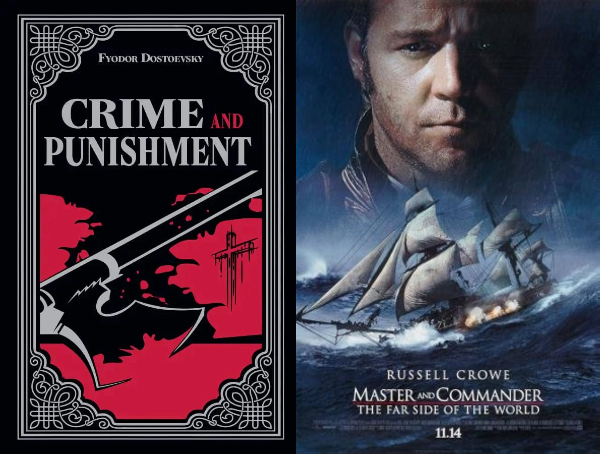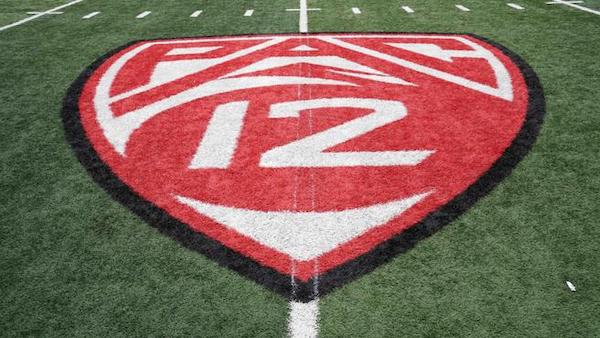What is the best pop culture thing you’d neglected for years but finally caught? Related: What’s the most famous classic you finally caught and realized was a waste of time?

As I grow older, I spend more and more time thinking about time itself. How it flows (ever faster!), how it feels (slow on a daily basis, while whole months seem to evaporate behind me), and perhaps most importantly: how best to spend it.
Two of my favorite ways to spend time, reading books and watching movies, sometimes compete for my attention. After all, at my age, it’s hard to knock out a few chapters and a whole movie after dinner without dozing off. And to be fair, I’ve already seen a lot of movies and read a lot of books! This means both that a) I’ve already enjoyed so many of the surefire winners, and b) my tastes are pretty refined and probably even a bit jaded. It takes a bit more to impress me after decades of consumption.
With these two competing impulses in mind, I’ve grown a lot more protective of my time, but also a lot more merciless in how I recommend other people spend their time. I may have a pathological need to finish books I start, mainly so I can render a fully informed and absolute verdict on then, but that is only so that I can say with confidence: DON’T BOTHER. For example: I, English teacher that I am, can confidently say that Dostoevsky’s Crime and Punishment was absolutely not worth the time it took to read. It’s a classic for a reason, with some fascinating moral questions to ponder and a complex central character. It’s also somehow simultaneously dull and melodramatic, and by even century-old standards, needs to be edited by about half. It’s what I’d hold up as a shining example of why we should re-evaluate the canon and find more modern examples of stories that cover similar intellectual ground if we want people to actually embrace and enjoy reading. It’s just… a slog. I’m sorry, Fyodor! I’m not saying your work has no cultural value; just that for 99% of currently living humans, this is a use of time that I simply cannot condone. And honestly, haven’t 99% of previous humans likely lived ok-to-great lives having never read it already? I’m only suggesting we present breathers not feel bad about it.
And yet… I am also reassured that no matter how much time I’ve spent on this earth, there are absolute gems of modern art that I’ve yet to discover. The best, most recent example of which is the film Master and Commander: Far Side of the World. Despite it’s unwieldy title, it is a perfect film. The period-accurate, creaky and grimy production details of this ship at sea are incredible. The cast delivers at every level from Russel Crowe as a charismatic captain down to the little pre-teen aspiring naval officer on his first journey at sea. It swings from tense and explosive action to jovial wartime camaraderie, with time to spare for philosophical asides about discovery, duty, friendship, and more. What a time! And to think, I’d shared a planet with this masterwork (pun) for over two decades and never experienced it. What a world.
I could say similar things about other movies like Charade (Hepburn and Grant?!) or Lone Star (Cooper, wow!), or Richard Powers’ Bewilderment (I could just die after finishing that one) etc., all of which are a hell of a lot more worth your time than trying to check the box on a supposed centuries-old classic. It’s not that old things are not worth our time, it’s that as we get old, our time is worth more than some slightly less wonderful old things! Tough calls have to be made, and sometimes obligations to a cultural canon must be sacrificed in favor of savoring the recently delicious. Bon Appétit!
So…
What’s an example of something you’d neglected for years, but upon finally catching, still took you by surprise with its greatness?
Conversely, what’s something you felt some cultural or peer pressure to appreciate, but upon finally experiencing, you can confidently say live up to its reputation and is better skipped?
In light of these examples, is this a reasonable way to think of using one’s time? Or is this approach a surefire path to cultural bankruptcy where we simply stop trying to appreciate difficult or less enjoyable art while sliding comfortably into brainless bliss?


